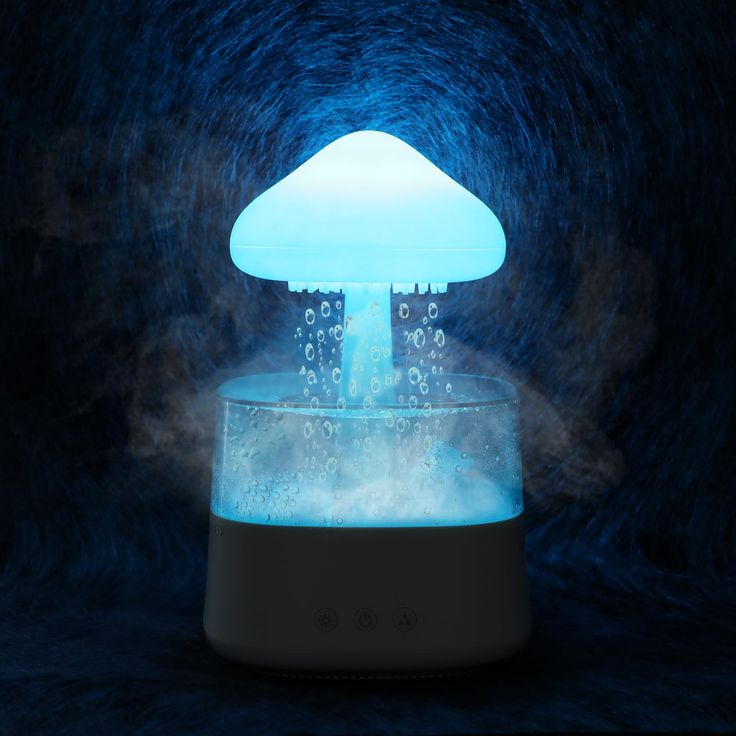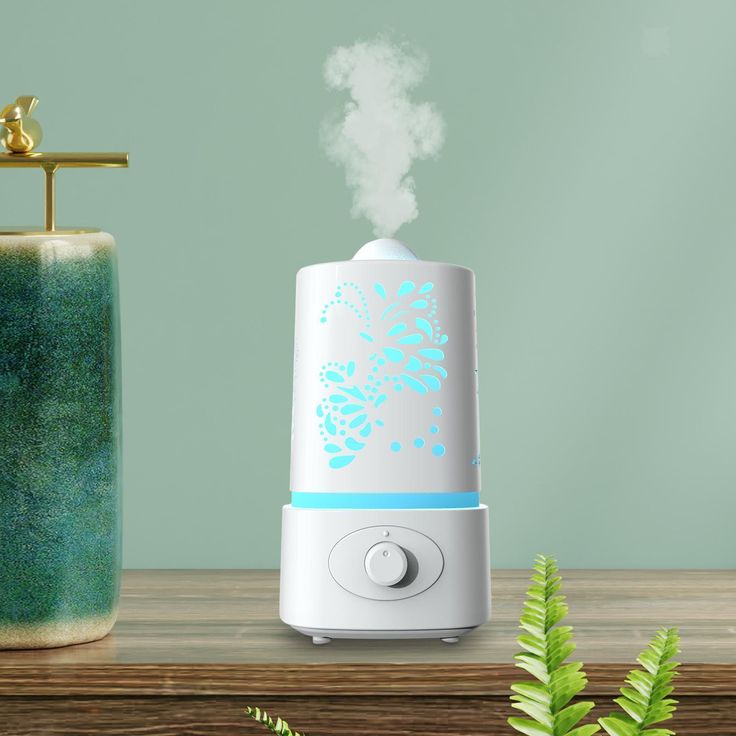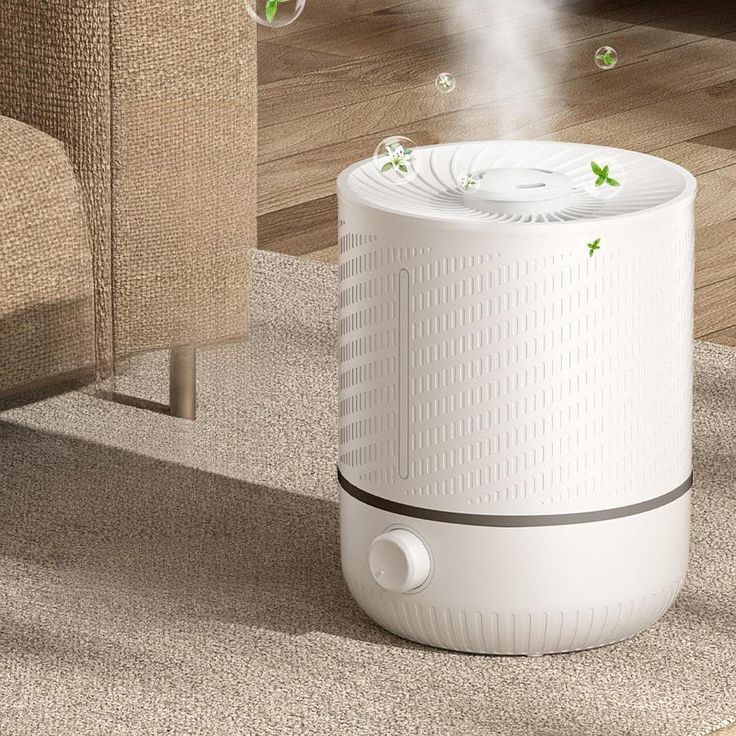Benefits of Using Humidifiers for Coughs
Is a humidifier good for a cough? Humidifiers can be essential in managing cough symptoms. They help by adding moisture to the air, which can soothe irritated respiratory tracts, ease dry throats, and make breathing easier. Here is how they specifically address different types of coughs:

How Humidifiers Can Ease Dry Coughs
Dry coughs, often triggered by dry air, can cause significant discomfort. Humidifiers add necessary moisture back into the air. This moisture can lubricate the respiratory tract. This can help ease the irritation that causes the cough. For those suffering from persistent dry coughs, a humidifier can be a game changer, especially during the dry winter months.
Impact of Cool-Mist Humidifiers on Wet Coughs
Wet coughs are characterized by the production of mucus. Cool-mist humidifiers can help by moisturizing the air. This helps to loosen mucus in the airways. By making the mucus less thick, it becomes easier to expel. This can significantly relieve coughing and aid in faster recovery from respiratory infections.
Choosing Between Cool-Mist and Warm-Mist Humidifiers
When selecting an air humidifier for cough relief, the choice between cool-mist and warm-mist types is crucial. Both serve the same purpose to humidify the air, yet they operate differently. Warm-mist humidifiers release heated vapor, which can feel soothing in cold weather. In contrast, cool-mist humidifiers emit a cooler vapor that is safer around children and can be more comfortable during warmer conditions.
Why Pediatricians Recommend Cool-Mist for Children
For families with young children, pediatricians often advise using a cool-mist humidifier. These humidifiers do not heat water, reducing the risk of burns if a child gets too close. Furthermore, the cool vapor emitted can ease children’s coughs and congestion effectively without the hazards associated with hot steam.
Safety Considerations for Warm-Mist Humidifiers
If opting for a warm-mist humidifier, safety must be a top priority. These units boil water to create steam, posing a burn risk in the event of accidental contact or spills. It is essential to place warm-mist humidifiers out of children’s reach and ensure they have safety features to prevent overheating. Despite their benefits, like potentially helping to kill germs with heat, warm-mist humidifiers require careful handling to avoid accidents.

Proper Maintenance of Humidifiers
Proper maintenance of your humidifier is essential for ensuring its effectiveness and safety. Neglecting this crucial aspect can lead to the spread of bacteria and mold into the air, which can have adverse health effects. Therefore, following a regular cleaning routine is vital for maintaining optimal performance while avoiding potential health hazards.
Daily Cleaning and Maintenance Tips
- Empty the Water Tank Daily: Always start your daily routine by emptying the water tank. This prevents mineral buildup and keeps the humidifier operating efficiently.
- Wipe Surfaces: After emptying the tank, take a moment to wipe down all surfaces to ensure they are dry. This helps minimize the chances of mold growth.
- Use a Clean Cloth: Utilize a clean cloth for wiping both the interior and exterior surfaces of the humidifier. This ensures that no contaminants are left behind.
- Check Manufacturer’s Guide: Always refer to the manufacturer’s guide for specific instructions on disassembling and cleaning filters or any other parts. Each humidifier model may have unique requirements.
- Air Dry Components: Allow all components to air dry completely before reassembling. This ensures that moisture does not get trapped inside, an environment conducive to mold and bacteria growth.
Importance of Using Distilled or Purified Water
Using distilled or purified water in your humidifier is highly beneficial.
- Minimization of Minerals: Distilled water contains fewer minerals, significantly reducing mineral deposits buildup inside the unit.
- Reduction of White Dust: By minimizing mineral buildup, there is a lower risk of white dust emissions, which can settle on surfaces in your home.
- Lower Bacteria Risk: Distilled water also reduces the risk of bacteria, leading to cleaner air quality when you use your humidifier.
- Improved Air Quality: Utilizing distilled water enhances the overall air quality, making your living environment healthier and more comfortable.
By adhering to these maintenance tips and utilizing distilled water, you can ensure your humidifier operates effectively and safely.
Health Considerations When Using Humidifiers
While humidifiers benefit many, they also pose some risks. Knowing how to use them safely is important for health.
Potential Risks of Improper Humidifier Use
If not maintained properly, humidifiers can promote the growth of mold and bacteria. This can lead to respiratory issues and aggravate allergies and asthma. It is crucial to clean humidifiers regularly and use distilled or purified water to minimize these risks. Remember, humidifiers should be kept clean and dry when not in use to prevent microbial growth.
How Humidifiers Can Help with Respiratory Conditions
Humidifiers increase air moisture, which can help ease symptoms of respiratory conditions like colds, flu, and bronchitis. They moisturize the airways, reduce the thickness of mucus, and make breathing easier. This is especially helpful in dry climates or during winter when indoor air can become particularly parched. However, it’s wise to consult a healthcare provider to ensure the use of a humidifier is appropriate for your specific health needs.

Humidity Control in Your Home
Managing the humidity in your home is key to creating a comfortable environment. It has a direct impact on health, especially for those with coughs or other respiratory issues. Let’s explore the ideal levels of humidity for maintaining good health and the tools you can use to monitor and adjust it effectively.
Ideal Humidity Levels for Health
Aim for an indoor humidity level of 30-50 percent. This range helps reduce the problems caused by air that is too dry or too moist. It’s just right for easing coughs and not encouraging mold growth. Keeping humidity in this zone can improve your breathing and comfort.
Tools to Monitor and Adjust Indoor Humidity
Hygrometers measure the moisture in the air. They are simple devices you can place in different rooms to keep track of humidity levels. To manage these levels, a humidifier or dehumidifier can be handy. Use a humidifier to raise the moisture if the air is dry. Conversely, a dehumidifier can help if it’s too damp. These tools work best when used correctly, following the maintenance tips as discussed earlier in this blog.
When Not to Use a Humidifier
While humidifiers offer relief for many cough symptoms, there are times when they are not recommended. Knowing when to avoid their use is as important as knowing how to use them correctly.
Recognizing Situations Where Humidifiers May Worsen Symptoms
Some conditions can be aggravated by increased humidity. For instance, if someone has asthma triggered by dust mites or mold, a humidifier might worsen their symptoms. Too much moisture can encourage the growth of these allergens. Similarly, if you notice condensation on windows or a musty smell, the air may be too moist, and a humidifier could contribute to mold growth.
People with allergies should be cautious. The added moisture can be a breeding ground for dust mites that thrive in high humidity. If a cough or respiratory condition does not improve with the use of a humidifier, or symptoms worsen, it’s time to stop using the device. Consider consulting a healthcare provider to find out if a humidifier is suitable for your specific conditions.
Alternatives to Humidifiers for Managing Coughs
If a humidifier isn’t fitting, other methods can help manage cough symptoms. Staying hydrated by drinking plenty of fluids can thin mucus and make it easier to cough up. Over-the-counter medications like cough suppressants or expectorants may also be helpful. Always read the label and follow the directions. Breathing in steam from a hot shower or a bowl of hot water can provide short-term relief. Keeping the head elevated while sleeping can help reduce coughing at night. If symptoms persist, consult a healthcare provider for more personalized treatment suggestions.
